Anthropology Club Meeetings 2019-2020
March 10, 2020
Naomi Ntakiyica
Teaching Feminine Spirituality: Practices of female spiritual authorities in Kyrgyzstan

Female spiritual authorities play an important role in the perpetuation of local spiritual and cultural heritage. Performing an Uzbek tradition, the otynchalar incarnate a relation between the Uzbek and Kyrgyz culture that has received rather little attention. At the same time, their agency takes place in an environment that aims to clearly define a national and religious identity. How do the otynchalar, but also other women transmit local spiritual knowledge in Kyrgyzstan today and how has this evolved over the last years? How do they relate to these dynamics, to the secular state and to the transforming religious landscape of the country? Does this influence their practices, their discourses, their role in the community and if yes, how?
Naomi Ntakiyica has started her research in the framework of the Volkswagen Foundation Project “Eurasian Studies and Beyond” in September 2019 at the Central Asian Department of the Humboldt University of Berlin under the supervision of Professor Manja Stephan-Emmrich. She has freshly arrived in Kyrgyzstan to start her fieldwork. She holds a BA and MA in Slavic Studies and an advanced MA in Cultural Anthropology and Development Studies from KULeuven, Belgium. For her second Master’s thesis she conducted ethnographic fieldwork among young pious Muslim women in Bishkek. Before returning to the academic world she worked in the social and cultural sectors in Brussels.
3 марта, 2020
Флориан Коппенрат
Kyrgyz Raptrepreneurs – Экономика рэпа в Бишкеке
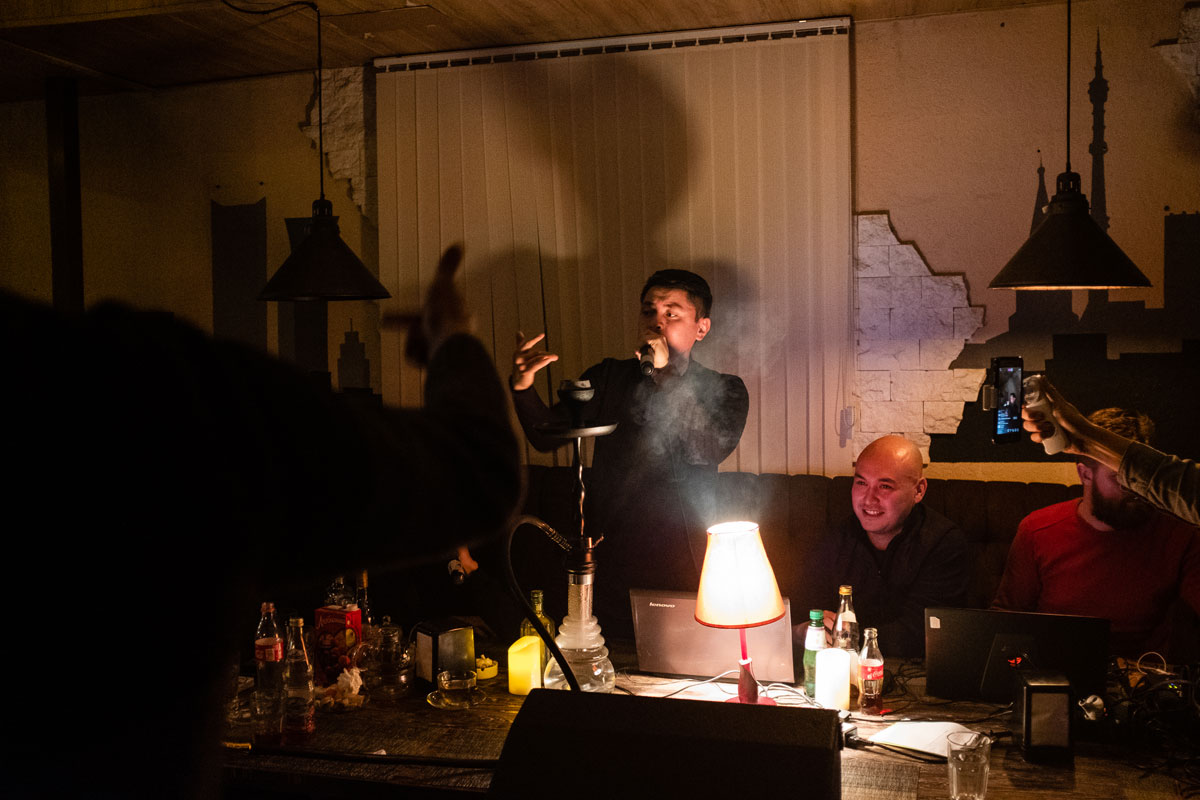
Рэп – доминирующий музыкальный жанр нашего времени. В Кыргызстане он имеет 30 летнюю историю и уже пережил несколько волн популярности. Вопреки образу, что «рэпом жить нельзя», рэперы и их окружение имеют целый ряд стратегий и практик, чтобы сделать их искусство более устойчивым. Изменения в мировой музыкальной индустрии за последнее десятилетие также не мало влияют на экономические возможности Бишкекского рэпа. В контексте, где исполнители часто должны выступать и предпринимателями далекими от большого шоу-бизнеса, данная презентация описывает, как рэп и соответствующие навыки можно превращать в ресурсы.
Флориан Коппенрат - аспирант Центрально-азиатского семинара Университета Гумбольдта и ассоциированный научный сотрудник Leibniz-Zentrum Moderner Orient в Берлине. Его диссертация посвящена экономике хип-хоп музыки в Кыргызстане. Он также является соучредителем интернет-журнала "novastan.org", который освещает новости и аналитику Центральной Азии на немецком и французском языках.
Feb 25, 2020
Tatiana Efremenko
What does it mean to have the right to the city in the contemporary urban world?
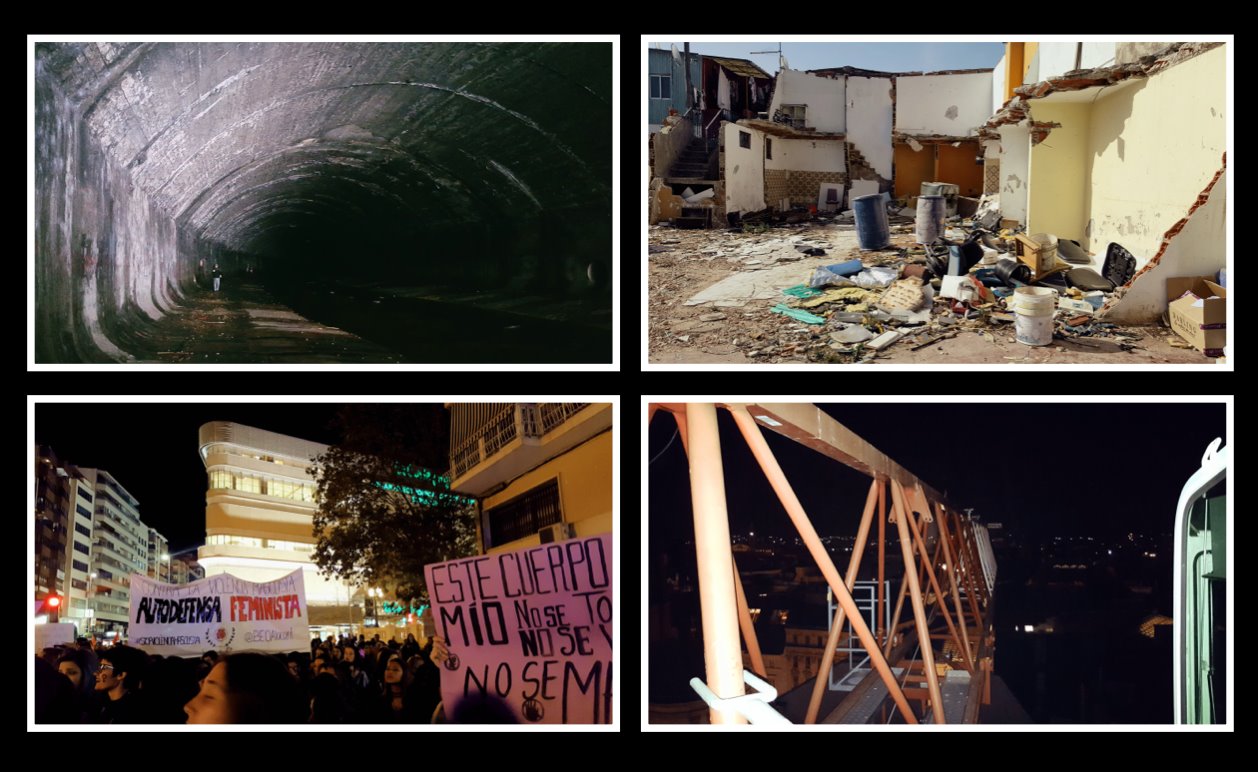
The city is the place where inequality, injustice and exploitation are most visible, but it is also the site of its transformation and resistance. The right to the city has emerged as a call for action encouraging local communities to transform urban realities under the principles of socio-spatial justice. The city is a theater of everyday life, and physical spaces of the city are its stage used by the city dwellers to claim, transform and appropriate those spaces and places in the form of protests, performance acts or individual struggles.
Tanya will give a glance on different ways to claim the right to the city she has encountered throughout her studies, work and personal experiences. In particular, she will talk about the traditional way of how the right to the city can be expressed as a collective voice in the form of women’s struggles to build their capacity for meaningful participation in urban development and governance, or citizens who defend their homes in informal settlements in Portugal and Turkey. Then, examples of a more individual and subtle approach to demand the right to the city will be brought up by the practices of urban exploration of abandoned and hidden spots in the cities. She will also bring an example of how an anthropological approach to study the right to the city was a way to influence the decision-making process of the urban renewal project in Spain.
Tanya Efremenko holds a Bachelor’s degree in Anthropology from AUCA and a Master’s degree in Urban Studies as a part of Erasmus Mundus Joint Masters Degree in four cities (Brussels, Vienna, Copenhagen, Madrid). After completing her studies, she moved to Denmark to start working as a project coordinator at the art gallery. Later she completed an internship and worked at the Copenhagen Institute for Futures Studies. In 2018, she also became a co-founder of a start-up, where they help small and medium companies to integrate circular economy principles in their business models.
18 февраля, 2020
Динара Кутманова, Бермет Борубаева
“Дыхание города. Методы учета уровня загрязнения воздуха и гражданские практики участия”
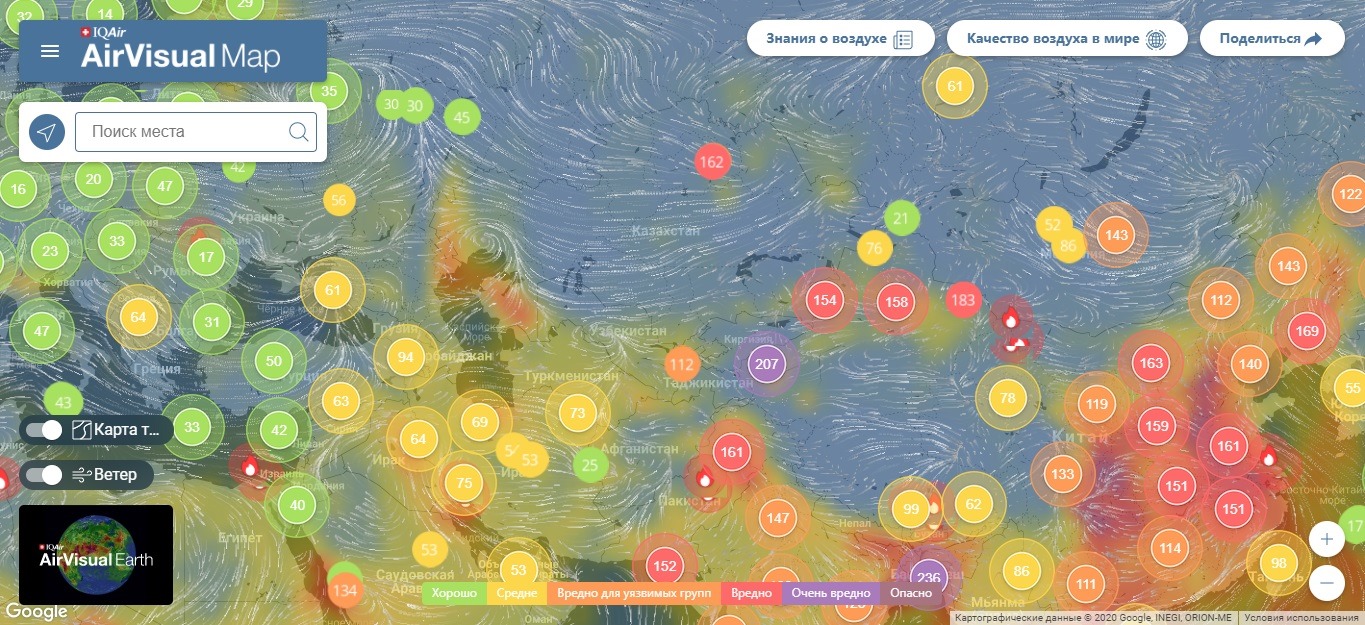
Дорогие коллеги, приглашаем вас на очередную встречу Антропологического клуба 18-го февраля, где Динара Кутманова расскажет о методиках мониторинга и работы с данными по загрязнению воздуха и Бермет Борубаева поделится практиками гражданского участия.
Изменения после распада СССР и обретения независимости государств ставит новые задачи городского управления перед властью и обществом. Хаотичные преобразования в городском развитии городов Центральной Азии обнаруживают схожие проблемы как загрязнение воздуха, сокращение зеленых зон и общественного транспорта, что в первую очередь отражается на экологии города и здоровье граждан.
За период с ноября 2019 Бишкек несколько раз занимал первое место в мире согласно рейтингу AirVisual (среди крупных городов). Уровень загрязнения вредными частицами РМ 2.5 за весь отопительный период был почти всегда выше предельно допустимой нормы и часто в несколько раз, в результате чего страдают дети, пожилые и чувствительные к смогу группы населения.
В результате проделанной работы общественных организаций и экспертов проблему загрязнения воздуха подтвердили мэр Бишкека, премьер-министр и президент КР. Они сказали правильные слова и назвали правильные способы решения. Но они не назвали конкретных сроков. Год назад также обещали ввести ряд мер, например запретить ввоз старых авто, но пока не предпринимается реальных действий.
Динара Кутманова - независимый эксперт по охране окружающей среды, кандидат юридических наук (экологическое право), 16-летний опыт работы в государственной природоохранной системе, практический опыт разработки экологических нормативов (предельно-допустимых выбросов, сбросов, размещения отходов), экологической оценки и аудита. Сфера научных интересов: защита экологических прав, оценка экологического ущерба, негативного воздействия на окружающую среду, кадастры загрязняющих веществ (выбросов, сбросов, отходов), экологический учет, экологическое законодательство.
Бермет Борубаева - исследовательница в области экологии города, куратор. Председатель ОО “Молодежное экологическое движение КР “Зеленый Кыргызстан”. Защитила магистерскую диссертацию в Высшей Школы Экономики (Москва) по системе общественного велопроката в Москве. Область научных интересов: экология города и транспортная политика, политическая экономия производства и трудовые права.
Feb 11, 2020
Baasanjav Terbish, PhD
The Kalmyks in Russia
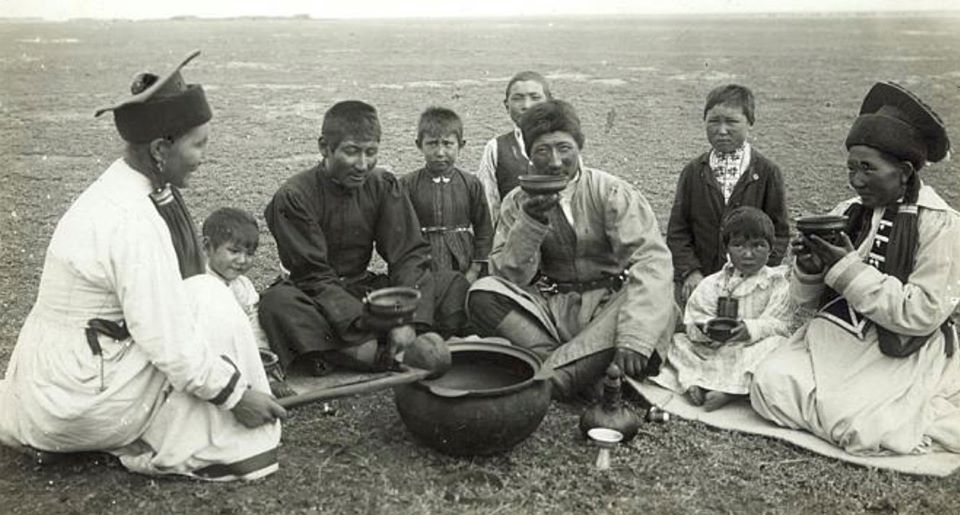
The talk is about a digital project which was hosted in the Mongolia and Inner Asia Studies Unit (MIASU) of Cambridge University in 2014-2019. Aimed at video-documenting Kalmyk culture in the broadest sense, the project produced a comprehensive database – more than 2,600 unique videos – on the cultural heritage of the Kalmyks.
Dr. Basaanjav Terbish is an Affiliated Researcher with the Mongolia and Inner Asia Studies Unit, Department of Social Anthropology, University of Cambridge.
Jan 28, 2020
Dr. Elena Molchanova
"I am not under stress, I am just ill!": Longitudinal Study of Posttraumatic Stress Symptoms in Adults and Adolescents after Osh Events in 2010
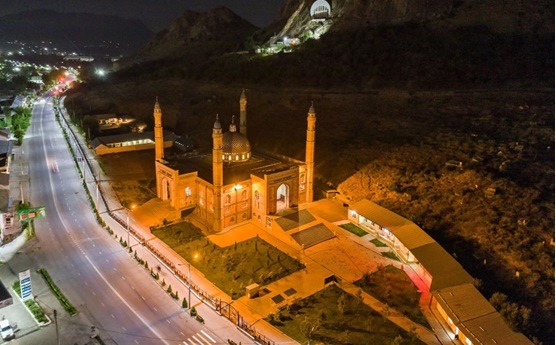
Upon expiration of the statute of limitations, it is now believed that survivors of the Osh two-days in 2010 have been successfully recovered. Moreover, emotionally saturated words, such as “crisis”, “massacre” and “war”, are tacitly forbidden, and not recommended to use in academic articles. Instead of these objectives, a neutral substitute - “events” is recommended – a concept, which does not reflect the significance of harm to the mental health of Kyrgyz citizens due to the Osh massacre in 2010. This research has been going for 8 years (from 2010 till present) in order to study the dynamics of symptoms of post-traumatic stress among the Osh massacre survivors, and those children who were 9 years or older at the time of the events.
Elena Molchanova, M, from Psychology Department has been working with Osh professionals in the Mental health sphere since June 2010.
22 января, 2020
Круглый стол с тремя профессиональными архитекторами (Мээрим Ранке, Азимбек Муратов и Нурлан Кальчинов) на тему:
Экология и архитектура

Проблема экологии и глобального потепления климата являются самым большим вызовом нашего столетия. В результате человеческой деятельности загрязняется окружающая среда, увеличился до критических отметок сброс парниковых газов (СО2, Метан) в атмосферу. Согласно IPCC, если человечество продолжит жить в таком темпе, к концу 21-го века планета нагреется до 4°С с абсолютно катастрофическими последствиями. Глобальные проблемы можно/нужно начать решать локально. Кыргызстан не является исключением. Жители города Бишкек испытывают на себе последствия загрязнения воздуха. Причем самыми крупными источниками сбросов вредных газов являются транспорт и отопительный сектор.
Как мы можем решить эти проблемы? Или, где и как мы можем начать? Чему мы можем научиться у мировой практики? И как можно средствами архитектурного проектирования внести вклад в решении экологических проблем? Мы приглашаем Вас обсудить (или поставить дальнейшие) вопросы в формате круглого стола.
Мээрим Ранке, архитектор, Франкфурт-на-Майне, MOW Architekten Master in Science, Architektur (TU Darmstadt) направление: Nachhaltiger Städtebau und Ökologisches Bauen.
Азимбек Муратов, Архитектор-градостроитель, активист, продвигал велодорожки в г. Бишкек, и реабилитацию русел рек Ала-арча и Аламединка, участвовал в спасении парка Чапайка.
Нурлан Кальчинов, архитектор-дизайнер, 2002 сооснователь студии интерьерного дизайна II&D Kazakhstan, консультирует по строительству эко-домов.
Dec 10, 2020
Pr. Elena Kim
Child Marriage in Kyrgyzstan: Exploring Institutional Ambivalences in Constructing The ‘Victim’
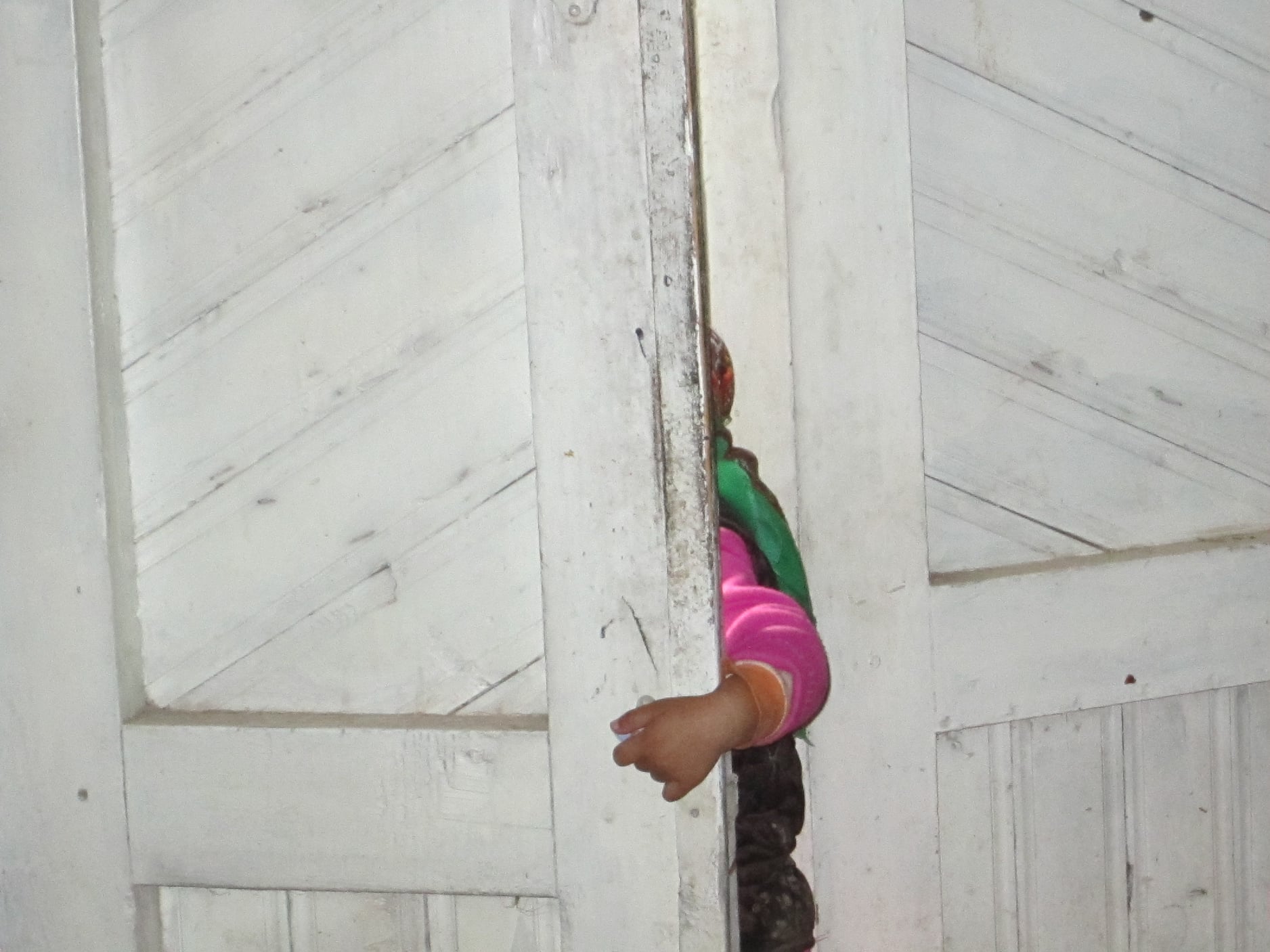
This talk is based on Elena's recent publication in an edited collection "Victim, Perpetrator, or What Else?: Generational and Gender Perspectives on Children, Youth, and Violence", edited by D. Bühler-Niederberger and L. Alberth and publisehd by Emerald Publishing.
The research focuses on institutional processes addressing child marriage in Kyrgyzstan with an emphasis on the operation of state-sponsored institutions of secondary education and their management strategies deployed when a child marriage comes under their purview. Based on thirty-two child marriage cases, contradictions between the recently emerging nationally recognized commitment to combatting violence against school children in Kyrgyzstan and the actual work done to protect schoolgirls from child marriage are identified. Administrative practices used by educational managers construct married schoolgirls as ‘unfit for schooling’ and act in accordance with such a construction. Using D. E. Smith’s feminist-inspired alternative sociology approach, Institutional Ethnography, as a conceptual framework, I argue that what happens is much more complex and nuanced than what is typically seen as ‘mere’ lack of acceptance, concealment or acquiescence. The presented study describes, maps and analyzes this institutional system to “reach beyond the locally observable and discoverable into the trans-local social relations and organizations that permeate and control the local” (Smith, 2006, p. 65). Taking my inquiry from the married girls’ standpoint, I discover that their exclusion is articulated by the system of schools’ appraisal and monitoring, both organized politically and administratively as an extension of government and its efforts to reform the national comprehensive education system and ensure national security and peace. I discover that, in this system, the concept of ‘child bride’ is treated with striking ambivalence in the institutional and public discourses and the notion of ‘violence’ is applied to child marriage in an inconsistent manner. Conceptual instability of child marriage as violence informs practices which often results in preventing young girls from formal schooling. When child brides are not immediately recognized as legitimate victims eligible for state protection, they become easily and eagerly erased in and by the system of secondary education. Schools, conceptualized as important allies in anti-child marriage programmes, fail to provide protection to their own students and work to exacerbate young girls’ marginalization and contribute to Kyrgyzstan’s new image as a regional hotbed of child marriages in the region. I empirically trace discursive linkages connecting national discourses on violence against children to specific programs and the organization of school work in relation to child marriage identifying, thereby, the place and role of the concept of ‘child marriage’ in these institutional settings. The settings which, I argue, ultimately work to ‘unmake’ child marriage as an act of violence against girl child.
Dr. Elena Kim is an associate professor at the American University of Central Asia, Bishkek, Kyrgyzstan. With her research interests in gender, international development, and global processes she has published her research in journals such as Gender, Technology and Development, Central Asian Survey, Rural Society, Business Ethics: A European Review, etc.
E-mail: kim_el@auca.kg
20 ноября, 2020
Тимур Файзиев
Ресурсоемкость как инструмент достижения цели

Тимур Файзиев – основатель и владелец строительной компании Elite House, девелопер, бизнес-тренер, эксперт в области строительства, инициатор проекта по постройке самого высоко технологичного здания в Центральной Азии. Лауреат общественной премии «Национальное величие», обладатель номинации «Безупречная репутация» 2019, г. Москва, Российская Федерация. Обладатель номинации «Руководитель года 2017» по версии Американской Торговой Палаты в Кыргызской Республике. Со-основатель Российско-Киргизского Торгового Дома «Азия». Председатель Фонда имени Тимура Файзиева, автор стратегии «1000 лет развития Центра Азии». Почетный партнер Государственного агентства архитектуры, строительства при Правительстве Кыргызской Республики.
Oct 17, 2020
James Plumtree
Placing a Difficult Guest: The Presence of Russians in Nineteenth Century Kyrgyz Epic Poetry

Episodes of the Kyrgyz-language epic Manas collected by Wilhelm Radloff in 1862 and 1869 feature ‘Orus’ (Russians). This detail fits awkwardly with later scholarly attempts to find historical evidence in the Manas epos for earlier Kyrgyz history. This talk suggests that the presence of Russians in the narratives provide another type of historical evidence: records of nineteenth-century Kyrgyz views concerning the increasing presence of Russian colonialism.
James Plumtree, following a CEU Global Teaching Fellowship, is a Faculty Member at AUCA. He is part of the Analyzing Kyrgyz Narratives (AKYN) Research Group.
Oct 10, 17.00, room 309, AUCA
With Basira Mir Makhamad
Seeds can speak: discovering the functional roles of structures from Early Bronze Age Ib via archaeobotanical investigation at Arslantepe (Turkey)
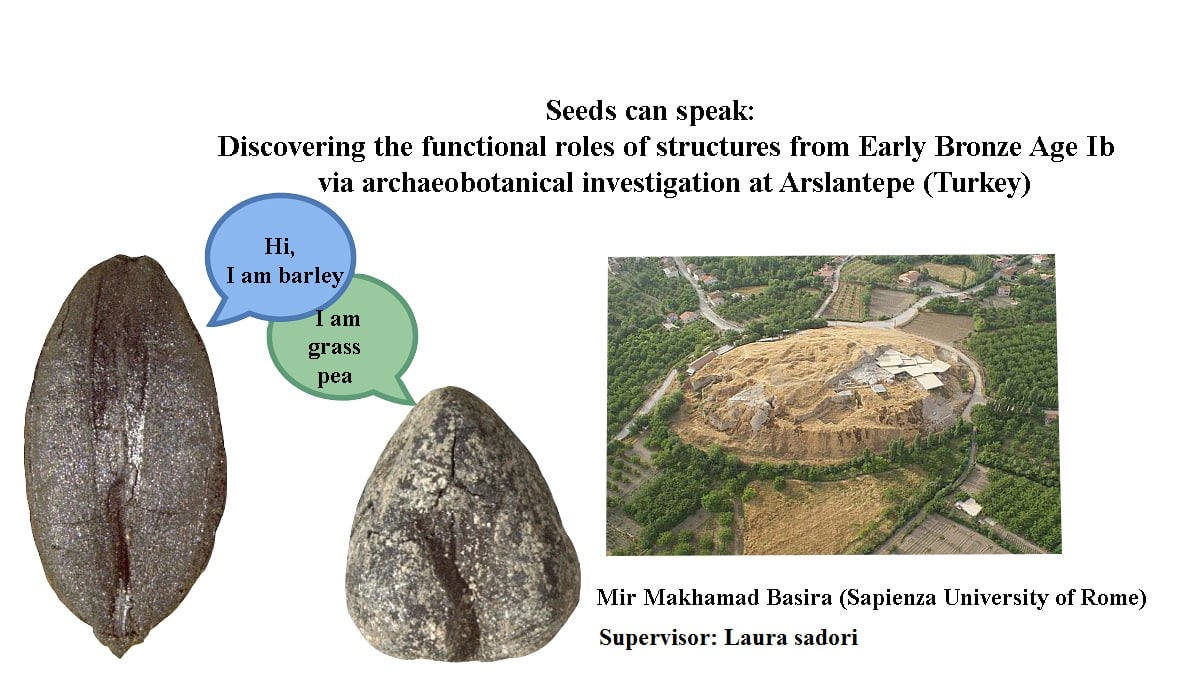
This thesis illustrates the results of the archaeobotanical study carried out at the long-lived site of Arslantepe (Malatya), Turkey. The study focusses on 131 carpological samples from the village of the Early Bronze Age (VIB2 period, 3100-2900 cal. BCE) destroyed by a fire. The aim of this study was to study the functional roles of structures from Early Bronze Age Ib using plant remains. 63,941 seeds/fruits, including the estimated ones, have been analyzed. This study has identified 15 taxa belonging to 7 plant families. Cultivated species were found together with wild plants and non-economic weeds. The distribution of plant remains in the rooms allows to find out that Building IX inhabitants were mainly specialized in cereal production. This building has been used for crop processing, storing and food consumption. While Building VIII was not a place where crop processing had been practiced. As regards an isolated room A472, inhabitants of this room cultivated not only cereals but also legumes. Based on the results, agriculture at Arslantepe was family-based.
Basira Mir Makhammad is a graduate of AUCA Anthropology program. From AUCA, she went to complete her Erasmus Mundus Masters of Science degree by studying in three countries: Portugal, Greece and Italy. Basira has just defended her Masters thesis at the Sapienza University of Rome.
Oct 3, 2019
Dr. Edward Lemon
Ethnographic Approaches to Security and Repression in Central Asia

Using examples from his fieldwork in Russia, Poland and Tajikistan, Dr. Lemon will reflect on how ethnographic approaches can enhance our understanding of security. He will examine how individuals experience security issues, cope with and resist security practices. He will focus on the repression of religious and political groups in the name of counter-extremism. Dr. Lemon will focus on the subjects of securitization, those who have been deemed a threat by Central Asian regimes.
Dr Edward Lemon is DMGS-Kennan Institute Fellow at the Daniel Morgan Graduate School and a Global Fellow at the Wilson Center in Washington DC. His research examines security, counter-extremism and authoritarianism in Central Asia. He is the editor of Critical Approaches to Security in Central Asia (Routledge, 2018).
Sept 26, 12019
Noah Tucker
Field Notes: Conflict, Survival and the Ethics of Violence: Personal Narratives of the Wars in Syria and Afghanistan

Description: This talk will offer preliminary results from an ongoing fieldwork project interviewing demobilized Central Asian participants in the ongoing conflicts in Syria, Iraq and Afghanistan. The dataset, collected in partnership with Sirojiddin Tolibov, provides a unique window into the recruiting process and decisions surrounding the ethics and morality of the use of violence through interviews primarily with interlocutors located in either still in combat or who demobilized voluntarily and have sought asylum or refugee status in in Turkey rather than returning home.
Noah Tucker is research associate at George Washington University's Elliot School of International Affairs Central Asia Program. He was previously Executive Editor for RFE/RL’s Uzbek Service and the Not in Our Name film and television series, the first region-wide project designed to counter violent extremism in Central Asia. Noah has worked on collaborative projects to identify the way social and religious groups affect political and security outcomes and headed a team that tracks social media use by Uzbek violent extremist organizations and their effect on the Uzbek language internet and the way culture shapes the conflict in Afghanistan. Recent publications include “Terrorism without a God: Reconsidering Radicalization and Counter-Radicalization Models in Central Asia” (GWU Central Asia Program September 2019). Noah has worked on Central Asian issues since 2002—specializing in religion, national identity, ethnic conflict and social media—and received an MA from Harvard in Russian, East European and Central Asian Studies in 2008. He has spent around six years living and working in in the region, primarily in Uzbekistan and Kyrgyzstan and speaks Russian and Uzbek.
19 сентября
Наргиз Чыналиева
Поговорим по душам?
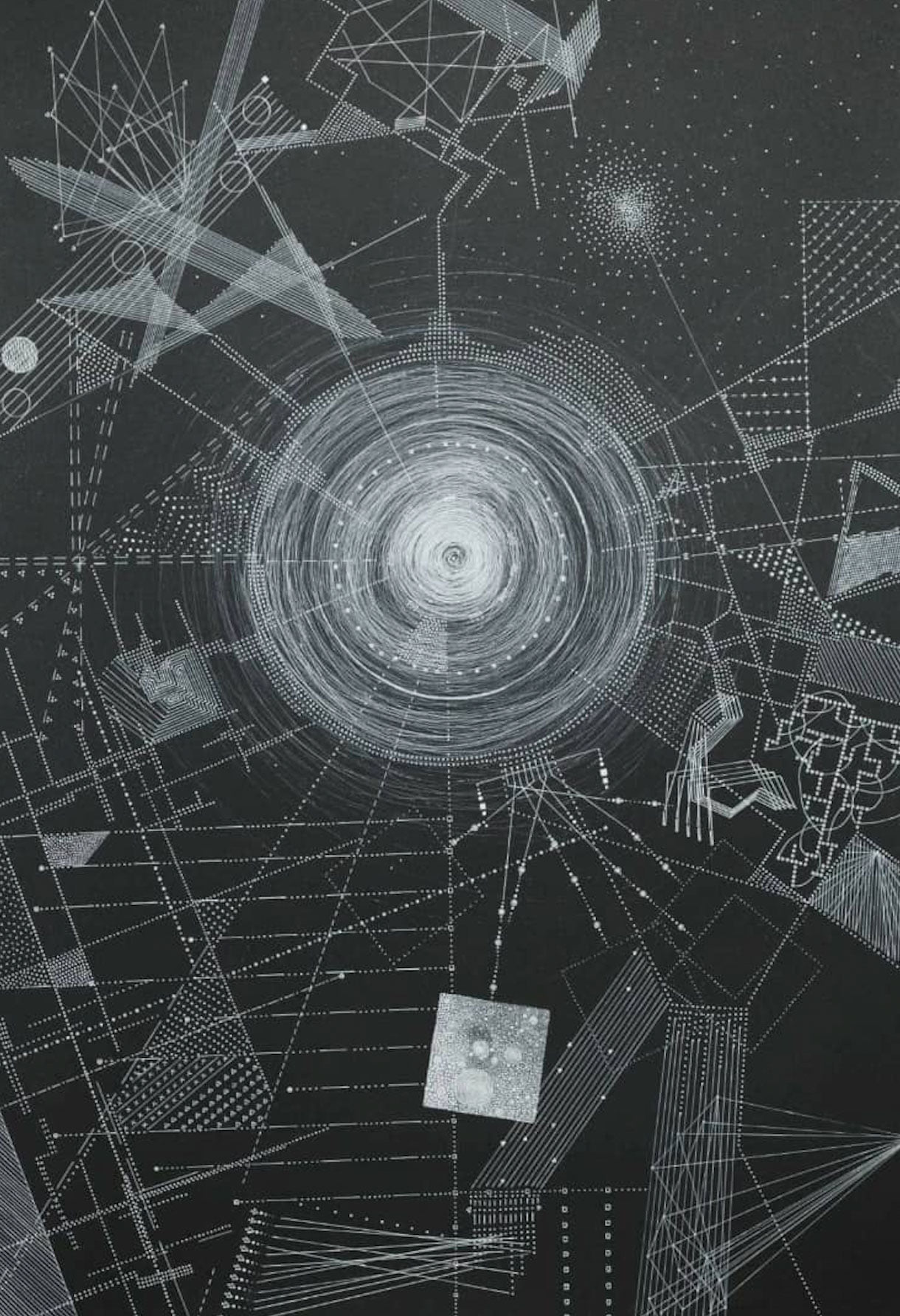
Найти любимое дело, слышать, свой внутренний голос громче белого шума снаружи, доверять себе и научиться работать со страхами. Всё это в истории одного художника. (Язык выступления - русский).
Наргиз Чыналиева - художник, лектор проекта "В ПОИСКАХ ПРЕДНАЗНАЧЕНИЯ", основатель дизайн студии DILDEN. Прежде чем понять себя попробовала и сменила 10 профессий. Цель в жизни: творческая самореализация и содействие счастью людей.
Sept 11, 2019
Gulniza Taalaibekova
Propellers of changes: the role of religious speakers in changing societal practices and people’s lives
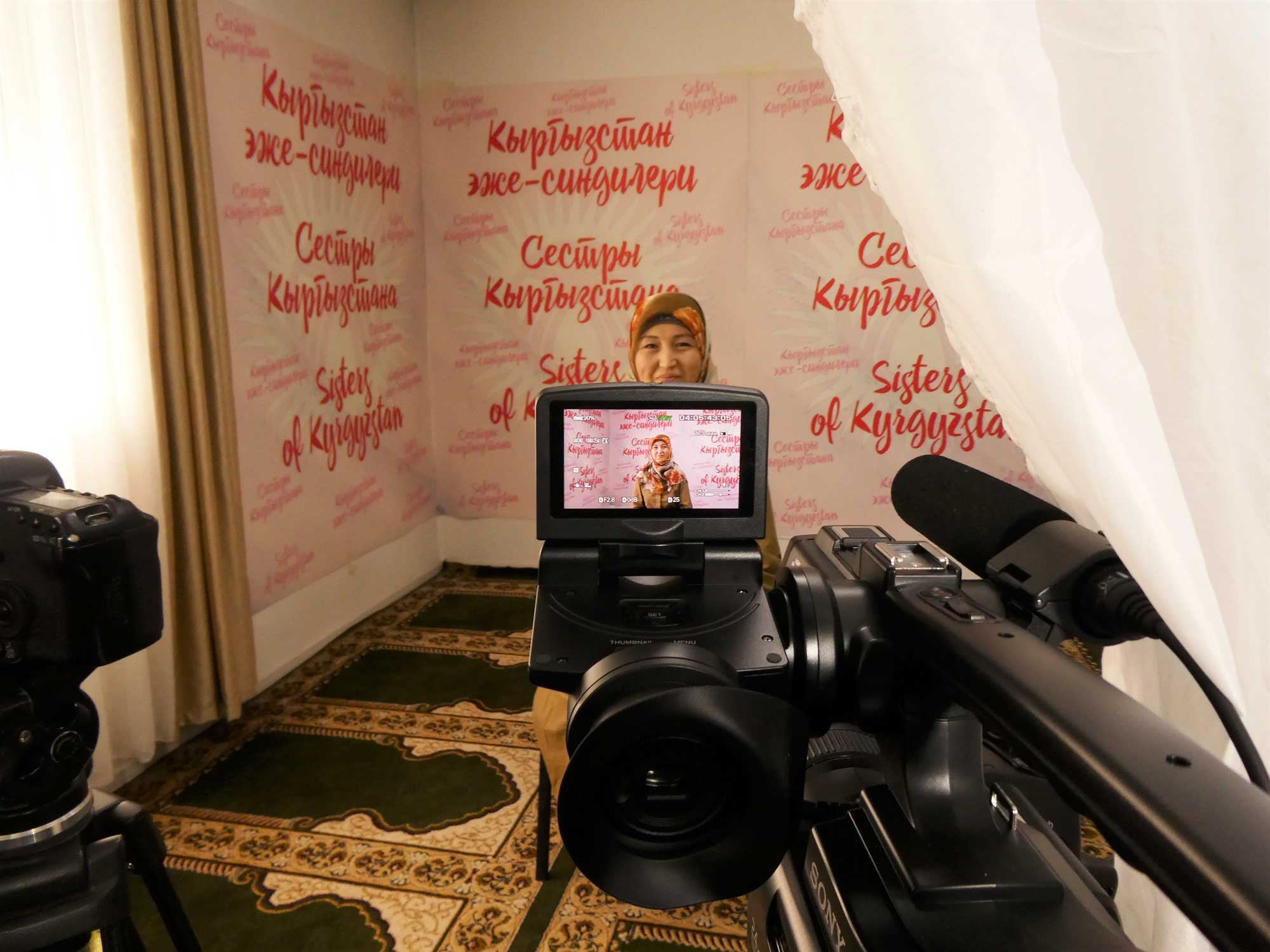
Based on 11-months of fieldwork Gulniza Taalaibekova in Uzgen (2018) and Bishkek (2019) will present her preliminary findings of her research and elaborate on current changes that are unfolding in individual people’s lives and the Kyrgyzstani society, in general. Specifically, she will be focusing on religious speakers of various backgrounds who call for changes in people’s lives and in the society but have different visions and understandings of what these changes should be. In her talk, she will discuss in detail what the differences of these visions and understandings are and connect an overabundance of Islamic YouTube channels, blogs, Instagram pages, websites, seminars, speech performances and study groups to competing visions of changes promoted by different religious figures. She argues that these different visions that are mediated in live and recorded speeches are not always commonly welcomed or agreed upon but get often questioned, challenged, and contested both by other religious figures and lay people, who are to consume them.
Gulniza Taalaibekova has studied Anthropology at the American University of Central Asia and graduated in 2015. Currently, she is a PhD student at the Frobenius Institute for Research in Cultural Anthropology at Goethe University in Frankfurt am Main. Her work is part of the Collaborative Research Centre 1070 “ResourceCultures” based at Tuebingen University and is funded by the German Research Foundation.
Sept 5, 2019
Dr. Yanti Hölzchen
Kyrgyzstan's New Mosques: Religious Knowledge ilim and Religious Infrastructure in Present-day Kyrgyzstan
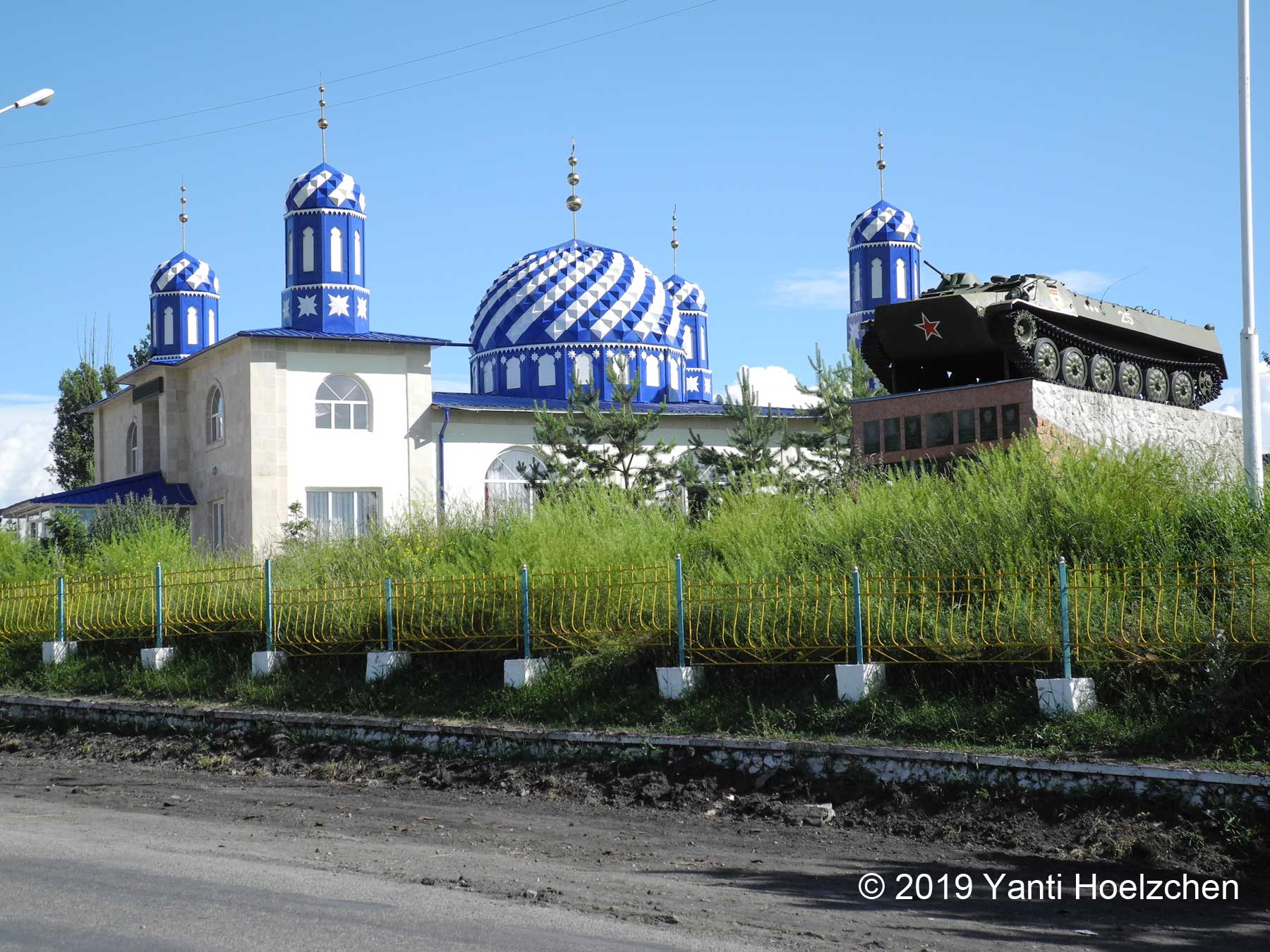
In her talk, Yanti Hoelzchen will present the main findings from her PhD thesis “Kyrgyzstan's New Mosques: Religious Knowledge ilim, Resources and Religious Infrastructure in Present-day Kyrgyzstan” (translated from German), defended in October 2018.
Based on twelve months of fieldwork in Bishkek and in the Yssykköl region, Yanti investigates social and cultural dynamics involved in the construction of mosques in Kyrgyzstan since the country’s independence in 1991. She shows how processes of mosque construction are connected to and embedded in larger networks of institutions and agents such as Islamic funds, madrasas, state and non-state institutions, imams, davatchy etc. In her thesis, Yanti gives a detailed ethnographic account of each of these institutions and groups of agents, and shows how these interconnect and interweave to constitute what she calls the "religious infrastructure". This religious infrastructure, she argues, revolves around the promotion and dissemination ilim, understood as an Islamic concept of knowledge. She portrays how ilim relates to both theological assumptions of what "knowledge" in Islam is, but also to the everyday embodied appropriations, embodied enactments and therefore embodied experiences of this knowledge. Furthermore, Yanti highlights how engaging with this notion of religious knowledge brings about changes in daily practices, social relationships and may result in certain frictions and conflicts in everyday life, thereby contributing to sociocultural changes on a broader, societal level.
Yanti Hoelzchen has studied Social and Cultural Anthropology as well as Japanese Studies in Germany and Japan. Since 2017 she is a research fellow at the Frobenius Institute for Research in Cultural Anthropology at Frankfurt University. Her thesis was conducted within a larger, interdisciplinary research program titled “ResourceCultures”, based at Tuebingen University and funded by the German Research Foundation.
